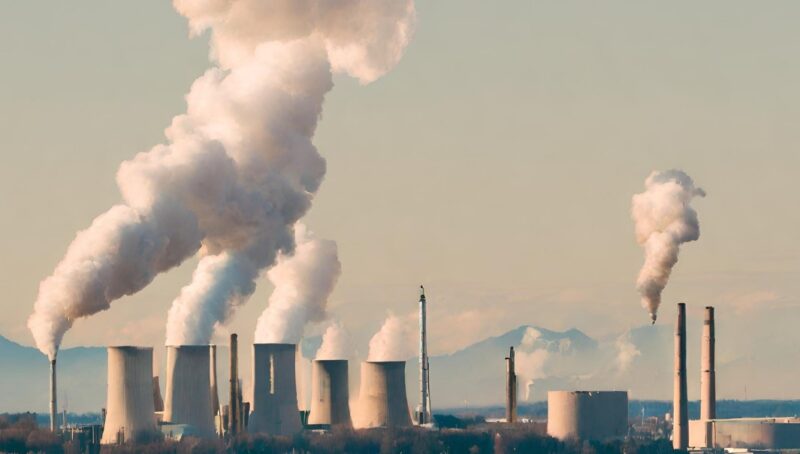Fossil fuels are a significant energy source in today’s world, powering everything from vehicles to electricity plants. However, their classification as nonrenewable resources raises concerns about their long-term availability and environmental impact. This article aims to provide an in-depth understanding of why fossil fuels are considered nonrenewable resources.
Fossil Fuels

Fossil fuels, including coal, oil, and natural gas, are derived from the ancient remains of plants and animals. These organisms, after dying millions of years ago, were buried under layers of sediment. Over time, they were subjected to intense heat and pressure, transforming them into the fuels we use today.
Formation Process
The formation of fossil fuels is a key aspect of their nonrenewable nature. This process takes millions of years, starting from the decomposition of organic matter to its conversion into coal, oil, or natural gas. The specific type of fossil fuel formed depends on the original material, the temperature, pressure, and the time involved in the process.
Limited Availability
Fossil fuels are finite resources. The existing deposits were formed over geological timescales, meaning they cannot be replenished within a human lifespan or even several generations. This limited availability is a cornerstone of their classification as nonrenewable.
Extraction and Consumption Rates

The rate of extraction and consumption of fossil fuels far exceeds their rate of formation. Human societies have been using these resources at an unprecedented pace, leading to a rapid depletion of available reserves. As a result, there’s a growing concern about the exhaustion of these energy sources in the foreseeable future.
Environmental Concerns
The environmental impact of fossil fuels also contributes to their nonrenewable status. Their extraction and use have significant environmental consequences, including habitat destruction, water and air pollution, and greenhouse gas emissions leading to climate change. These impacts further compound the challenges associated with their use.
Alternatives and Sustainable Practices

The search for renewable alternatives is driven by the nonrenewable nature of fossil fuels. Renewable energy sources like solar, wind, and hydroelectric power are gaining traction as sustainable alternatives. These resources, unlike fossil fuels, are replenishable within a human timeframe and offer a more environmentally friendly option.
Impact on Climate Change
One of the most pressing issues linked to fossil fuel usage is climate change. The burning of fossil fuels releases significant amounts of greenhouse gases, primarily carbon dioxide, into the atmosphere. These gases trap heat from the sun, leading to a rise in global temperatures, which in turn causes a cascade of environmental problems.
This includes melting polar ice, rising sea levels, extreme weather events, and disruptions to ecosystems. The contribution of fossil fuels to climate change reinforces their unsustainable nature and the necessity for a global shift to cleaner energy sources.
Economic Considerations

The economy of many countries is heavily reliant on fossil fuels, not just for energy, but also for jobs and revenue. However, this dependence creates vulnerability. Fluctuations in fossil fuel availability and prices can have significant economic impacts.
Moreover, as reserves diminish, the cost of extraction increases, making them less economically viable over time. This economic aspect is crucial in understanding why a transition away from fossil fuels is necessary for sustainable economic growth.
To explore this further, understanding the economic stability and affordability provided by these energy sources reveals their profound impact on global economies, despite the pressing need for a shift towards more sustainable alternatives
Geopolitical Factors
Fossil fuels also play a significant role in global politics. Countries with abundant fossil fuel reserves often have considerable geopolitical influence. However, this can lead to political instability, especially in regions where the economy is heavily dependent on a single resource. The nonrenewable nature of fossil fuels thus has far-reaching implications beyond environmental concerns, affecting global politics and security.
Health Implications

The extraction and burning of fossil fuels have direct and indirect impacts on human health. Air pollution from burning fossil fuels is linked to respiratory and cardiovascular diseases. Additionally, the extraction processes can contaminate local water sources and soil, leading to long-term health issues for nearby communities. These health impacts add another dimension to the debate about the sustainability of fossil fuels.
Technological Advancements
Technology plays a vital role in both the exploitation and the phasing out of fossil fuels. While advancements in extraction techniques, like fracking, have temporarily boosted the availability of certain fossil fuels like natural gas, they also raise environmental and health concerns. On the other hand, technological innovations in renewable energy and energy efficiency are crucial for reducing reliance on fossil fuels.
The Path Forward

Moving away from fossil fuels requires a multifaceted approach. This includes investing in renewable energy, improving energy efficiency, developing new technologies, and changing consumption patterns. Governments, businesses, and individuals all have roles to play in this transition. The shift is not only about replacing an energy source but also about transforming the way societies operate and interact with the environment.
FAQs
How does the nonrenewable nature of fossil fuels affect global energy security?
The nonrenewable nature of fossil fuels poses a significant risk to global energy security. As these resources deplete, nations that rely heavily on them face the prospect of energy shortages and increased prices. This uncertainty can lead to economic instability and necessitates the development of alternative, more sustainable energy sources to ensure a stable and secure energy future.
Can technological advancements convert fossil fuels into a renewable resource?
Current technology cannot convert fossil fuels into a renewable resource. The formation of fossil fuels is a natural process that takes millions of years, and no technology can accelerate this to a human timescale. While technology can improve the efficiency of fossil fuel use and reduce environmental impact, it cannot change the fundamental nonrenewable nature of these resources.
Are there any fossil fuels that are more sustainable than others?
Among fossil fuels, natural gas is often considered more sustainable than coal or oil. This is because natural gas burns cleaner, producing fewer pollutants and greenhouse gases. However, it is important to note that while natural gas might be the ‘cleanest’ fossil fuel, it is still nonrenewable and contributes to greenhouse gas emissions, making it unsustainable in the long term.
How does the reliance on fossil fuels affect international relations?
Reliance on fossil fuels can significantly impact international relations. Countries that possess large reserves of fossil fuels often wield considerable geopolitical power, influencing global politics and economics. This can lead to international tensions, especially over issues like resource control, energy prices, and environmental policies.
What role do subsidies play in the fossil fuel industry?
Subsidies play a significant role in the fossil fuel industry by making it more economically viable. These subsidies can come in the form of tax breaks, financial incentives, or direct funding, and they often keep fossil fuel prices artificially low. This can discourage investment in renewable energy and perpetuate reliance on these nonrenewable resources.
Is carbon capture technology a solution to the problems posed by fossil fuels?
Carbon capture and storage (CCS) technology is seen as a potential way to mitigate the negative environmental impacts of fossil fuels. By capturing carbon dioxide emissions from sources like power plants and storing them underground, CCS can reduce the amount of greenhouse gases released into the atmosphere. However, it does not address the issue of the finite nature of fossil fuel resources and is itself subject to economic and technological challenges.
Final Words
In summary, fossil fuels are classified as nonrenewable resources due to their finite nature, the environmental damage they cause, and their contribution to climate change. The economic, geopolitical, and health implications further complicate their use.
Addressing these challenges requires a global effort toward sustainable energy solutions and a rethinking of our relationship with energy and the environment. The transition to renewable energy is not just a necessity but an opportunity to build a more sustainable and equitable world.
